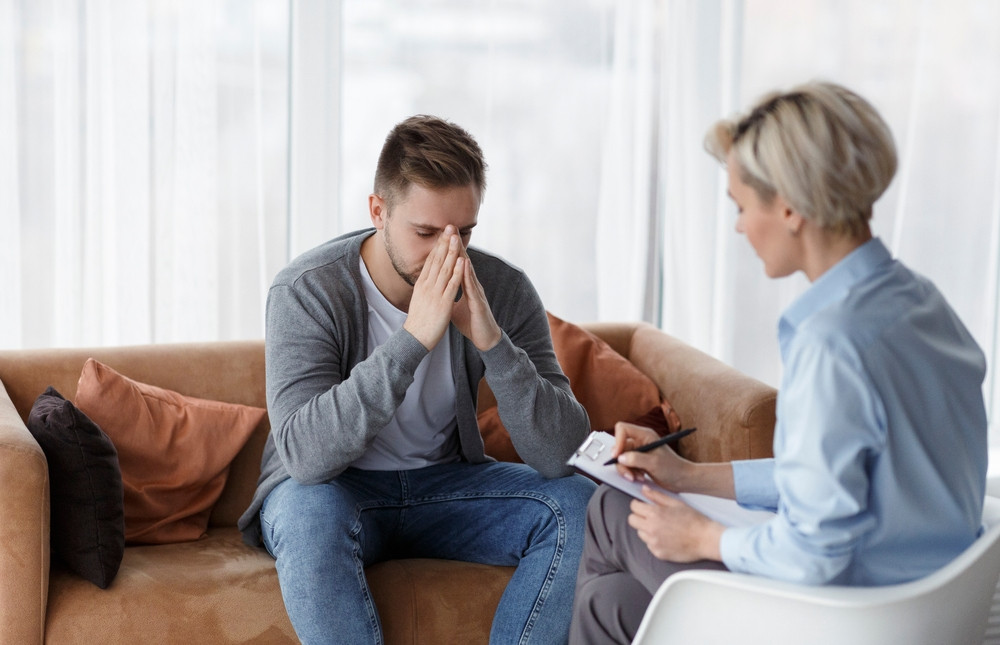Psychology
Is Anxiety Taking Over?

It's normal for everyone to experience some degree of anxiety in their lives. There are times when we'd all expect our heart to race and to feel edgy or tense.
Think about the last job interview you had. Getting stuck in traffic on the way to an important appointment is stressful for even the most relaxed person.
Anxiety is the most common mental health condition in Australia. Interestingly, more women experience anxiety than men. The statistics are quite confronting: one in three women and one in five men will experience anxiety at some stage in their life. There has also been an upward trend in the diagnosis of anxiety in people under the age of eighteen.
The question to ask yourself is whether you have started experiencing symptoms during a normal day fulfilling everyday activities? Or maybe fear, worry or obsessive thinking is taking over.
When we talk about possible symptoms what we mean is the following:
Physical: quick breathing, racing heart, feeling tense or extreme restlessness
Psychological: obsessive thinking, excessive fear or worry
Behavioural: avoiding situations or the need to perform routines and rituals
And this list is not exhaustive or static by any means. What may have started in quite a minor way six months ago, might now be creeping up on you and starting to interfere with normal life.
It is also important to realize that not all types of anxiety present in the same way because there are different types of anxiety.
General Anxiety
Social Anxiety
Phobias
Panic Disorder/Attacks
As well as specific conditions where anxiety is one part of the picture such as Obsessive Compulsive Disorder (OCD) or Post Traumatic Stress Disorder (PTSD).
Individuals suffering from General Anxiety say they feel anxious a lot and their worries relate to several aspect of life, be that work, health, family, and financial issues, rather than just a single issue. Even minor things can become the focus of anxiety, leading to intense and persistent worries.
If your extreme worry is combined with very strong physical symptoms such as shortness of breath, chest pain, dizziness or excessive perspiration this combination suggests a Panic Disorder. Sometimes, people experiencing a panic attack think they are having a heart attack because the physical reaction is so very strong. If panic attacks persist for more than a month it is most likely a panic disorder is present and professional guidance should be sought.
If you’d like to read more about the Types of Anxiety, then Beyond Blue’s website is a valuable source of information and can help answer some of your questions prior to, or during the course of, treatment.
Treatment Via Psychology
Psychological treatment (also known as talk therapy) can help change your thinking patterns so you're able to keep your anxiety under control and reduce irrational worries.
There are several types of effective psychological treatments for anxiety, as well as different delivery options. Some people prefer to work one on one with a professional, while others get more out of a group environment. A growing number of online programs, or e-therapies, are also available.
In most instances a combination of cognitive behavior therapy, acceptance and commitment therapy, and mindfulness is drawn upon in the treatment of anxiety, thereby equipping clients with clear strategies to self-manage their thought processes moving forward.
Mental Health Treatment Plans
In Australia, many people going through mental health issues, such as anxiety, prepare a Mental Health Treatment Plan with their GP. This can help with the cost of treatment. The plan includes a referral to a psychologist and the Medicare rebate covers you for a specified amount towards a session with a psychologist. Plans include 6 sessions initially and potentially more, after a review with the GP.
Prognosis
It’s important to realize that anxiety does get better, but it is not completely cured by treatment. Having a tendency towards anxiety is within an individual’s makeup. What treatment CAN do is equip a person with tools and strategies to manage anxiety in their lives, so that they can live a full and rewarding life and not be limited by the condition.
If you are experiencing a personal crisis or thinking about suicide, please call Lifeline on 13 11 14.